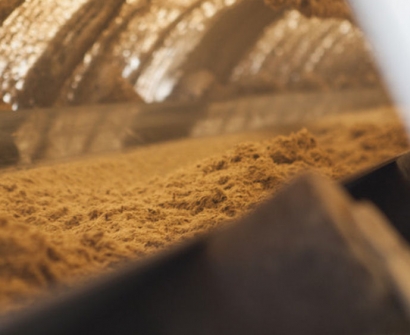
Conversion work will begin as early as 2021 so that the plant can be 100% biomass- powered in 2023, with priority given to the local biomass deposits available (bagasse, forest wood, pruning wood, etc.), supplemented by imported wood pellets from FSC and PEFC-certified forests, the traceability procedure of which will be compliant with the EU Wood Regulation (RBUE). Ultimately, the conversion will increase the proportion of renewables in the energy mix on Reunion Island from 35% to 51% and make it possible to reduce greenhouse gas emissions by approximately 640,000 tonnes of CO2 equivalent per year, i.e., an 84% decrease in direct emissions compared to the plant’s current operating levels.
e CRE's decision also provides for an investment budget, needed to extend the operation of the group's oldest unit (ABR1) for 15 years; the electricity purchase agreement has consequently been extended from 2027 to 2043 for ABR1.
As stated in the deliberation, “The biomass sector is of central importance to the success of Réunion Island’s energy transition. The current Multi-Year Energy Program for Réunion Island (MEP) sets targets for the substitution of coal in electricity production by renewable energy sources or the recovery of up to 481 GWh of additional annual production in 2023 compared with 2013. The conversion to biomass at the Bois-Rouge power plant, expected to be effective for all units in the Second Half of 2023, will contribute to achieving this energy policy objective, with electricity production from biomass estimated at around 530 GWh.”
Frédéric Moyne, Chairman and Chief Executive Officer of Albioma, stated, “After having innovated in Reunion Island in 1992 by commissioning the first bagasse/coal hybrid power plant, we are pleased to announce today a new era serving the energy transition: the end of coal at Bois-Rouge and the extension of the power plant's electricity sales contract until 2043.Enshrined in the Multi-Year Energy Program (PPE), our plant’s conversion to 100% biomass will make renewables the majority source in Reunion Island’s energy mix.
“Within Albioma, on November 20, 2020, the Albioma Le Moule plant (ALM3) in Guadeloupe was recommissioned, to operate using biomass. Today, our Bois-Rouge site can, in turn, set out on its green revolution. Albioma continues to make more and more room for renewable energies in its energy mix: our strategy is aimed at reaching nearly 100% renewable energies by 2030 at the latest.”
The Albioma Bois-Rouge plant, which has installed capacity of 108 MW, generates around 25% of the region’s total power consumption.

